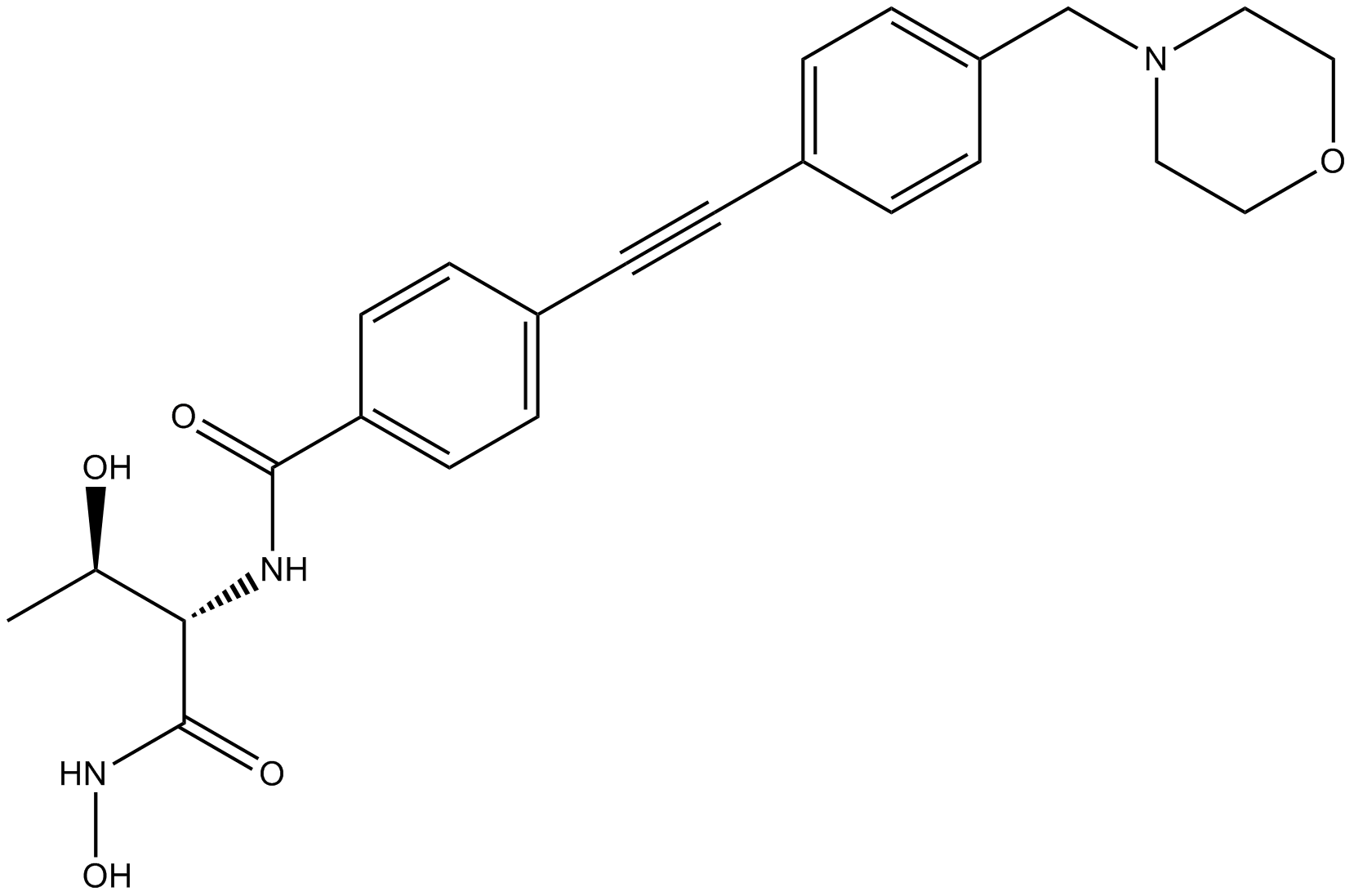CHIR-090 (Synonyms: CHIR 090;CHIR090) |
| Catalog No.GC14386 |
An antibiotic and LpxC inhibitor
Products are for research use only. Not for human use. We do not sell to patients.

Cas No.: 728865-23-4
Sample solution is provided at 25 µL, 10mM.
CHIR-090 is a very potent, low, tight-binding inhibitor of LpxC with Ki value of 4.0 nM [1].
LpxC is a zinc-dependent amidase and present in almost all Gram-negative bacteria. LpxC is a promising target for the development of novel antibiotic substances against multigrug-resistant Gram-negative bacteria [2].
CHIR-090 is a potent LpxC inhibitor and has a different selectivity with the reported LpxC inhibitor L-161. When tested with Escherichia coli LpxC, administration of CHIR-090 showed tight inhibition with Ki value of 4.0 nM, Ki*=0.5 nM, K5=1.9/min and K6=0.18/min [1]. In bacterial P.aeruginosa efflux pupm mutants, CHIR-090 treatment showed inhibition function on MexAB-Oprm, MexCD-OprJ and MexEF-OprN [2]. CHIR-090 showed remarkable antibiotic activity against both E.coli and P.aeruginosa by inhibiting LpxC orthologs at low nM concentrations [3].
In E.coli W3110RL with R.legumunosarum lpxC replacement of E.coli lpxC, CHIR-090 (1 to 10 μg/ml) treatment had no effect on strain growth on LB agar plates while wild-type cells stopped growing after about 2 h in the presence of 1 μg/ml CHIR-090 [1].
References:
[1].Barb, A.W., et al., Inhibition of lipid A biosynthesis as the primary mechanism of CHIR-090 antibiotic activity in Escherichia coli. Biochemistry, 2007. 46(12): p. 3793-802.
[2].Barb, A.W. and P. Zhou, Mechanism and inhibition of LpxC: an essential zinc-dependent deacetylase of bacterial lipid A synthesis. Curr Pharm Biotechnol, 2008. 9(1): p. 9-15.
[3].McClerren, A.L., et al., A slow, tight-binding inhibitor of the zinc-dependent deacetylase LpxC of lipid A biosynthesis with antibiotic activity comparable to ciprofloxacin. Biochemistry, 2005. 44(50): p. 16574-83.
Average Rating: 5 (Based on Reviews and 30 reference(s) in Google Scholar.)
GLPBIO products are for RESEARCH USE ONLY. Please make sure your review or question is research based.
Required fields are marked with *




















